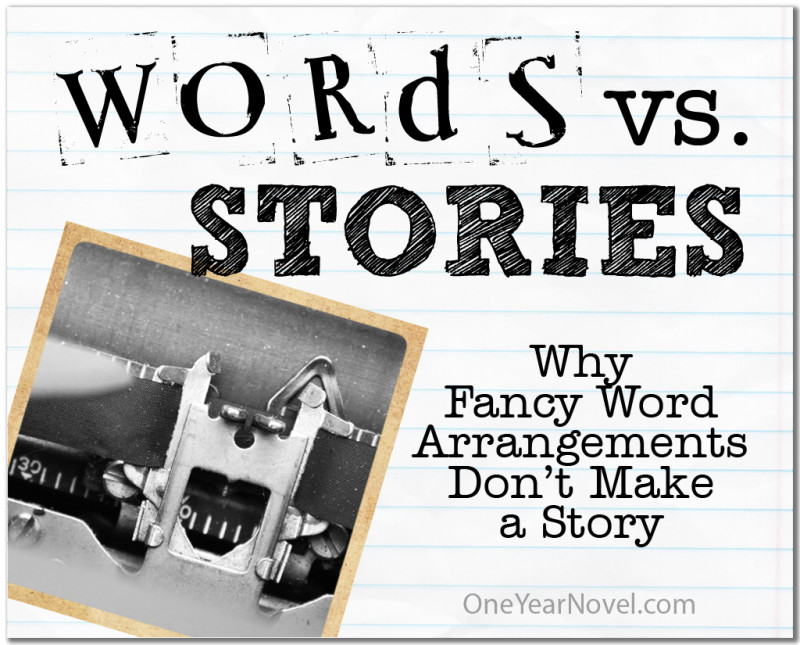How to Make Your Critique Group Genuinely Helpful, Part 3
Daniel Schwabauer
Read Part 1: Why You Should Join—or Start—a Critique Group »
Read Part 2: How to Give Feedback »
Receiving Feedback
Finding (or starting) a good critique group may be the single most helpful thing you can do to polish your skills as a writer. And growing as a writer is really the point. Yes, a good group will be helpful in revising a novel or a series of short stories. But personal improvement is more important than polishing a single manuscript. Learning to give and receive feedback will help you over a lifetime.
Last week I outlined what I call the Zoom method, a critique approach that moves from big picture to small. That list of potential manuscript flaws is lengthy, but worth taking the time to understand. When you can spot listed problems in someone else’s work, you are more likely to anticipate and avoid them in your own.
The really hard work of a critique group is always done by those giving feedback, not the one getting it. To be helpful, the readers in your critique group must spot inconsistencies between what a writer intends and what his text achieves. Good readers try to observe not just a written story, but their own reactions to that story. They have to simultaneously imagine your ten-page pirate battle and notice their own emotional reactions to it. This requires a considerable amount of both story technique and personal awareness.
But readers are not the only ones responsible for a great critique session. While it is certainly easier to be on the receiving end, the writer has a part to play as well. Here are four rules to observe when your manuscript goes under the microscope.
Rule #1 – Don’t explain.
Writers tend to give too much information before (and after!) a reading. If someone has missed a critique session and needs to be filled in to understand what you are about to read, go ahead and tell them what they missed. But don’t explain the backstory you left out of your book. Don’t give your group any information not directly available in the text. Doing so provides story context that won’t be shared by other readers. This damages the value of a live critique.
Similarly, guard the secrecy of what will unfold in later chapters the same way you would in a novel. (Would you ever type, “Dear Reader: I know things look bleak for Esmerelda right now, but in the next chapter a rescue helicopter pulls her to safety”? I hope not.)
In short, don’t give your live group any information that isn’t available to other readers.
Rule #2 – Value feedback.
Feedback that reveals flaws is precious. Cultivate a genuine desire to have the flaws in your work exposed. Critiques are not about you personally. They are not about your abilities as a writer. They are about words on a page: these particular words on these particular pages, and how these particular people were affected.
Even if someone shares an opinion about your excerpt that you don’t agree with, be grateful for it. You cannot spot every flaw in your own work. You need the help of your peers. Don’t ignore legitimate criticism on the basis that “they just don’t understand.” Yes, you know more about your story than anyone else in the room. That’s what makes your perspective flawed. You actually know too much. Not knowing your story is what makes a critique group valuable. Your readers don’t remember the pages you deleted or the character background work you did before writing. They don’t have any context except what’s in your draft. This is why they can respond to it as typical readers.
So smile at every red mark. Giggle when your awkward sentences and tired clichés are uncovered. Pump your fists when your prose weaknesses and story inconsistencies are exposed. Rejoice when readers speak all manner of evil against your story. Rejoice and be glad!
Rule #3 – Ask questions.
After you have listened to every critique, it can be helpful to ask questions for the sake of clarity. But don’t ask questions that aren’t related to your readers’ perceptions. Never ask something like, “What if I told you that Bob is really the villain? Then would you like his dialogue?”
Do ask questions that help you to understand the story experience your readers are having, such as:
“Does this plot twist work?”
“What do you expect after chapter six?”
“Who do you think is behind the assassination attempt?”
“Why did you say you hate Bob’s decision to go home on page 92?”
“Does the situation with Jennifer and Cole seem predictable?”
Rule #4 – Say “thank you.”
Don’t be defensive. Don’t justify your story or defend your writing decisions. Even if their feedback wasn’t helpful, your group just gave you 30 or 40 minutes of their time and focused concentration. Be grateful.
…
Which of these rules do you struggle with most?




I really appreciate that first rule about not explaining backstory, or giving away secrets. I’ve never been a fan of having to provide information in general, but in some of the local groups I’ve been to it seemed to be almost expected, if not encouraged, to give as much information as possible. Not all groups were like this, but still. I guess it seemed counterproductive?
Explaining wastes a serious amount of critique time.
My weakness is being a passive recipient. I look back on many missed opportunities to draw more out of those who bothered to read. If I had asked better follow-up questions, I could have learned more from them.